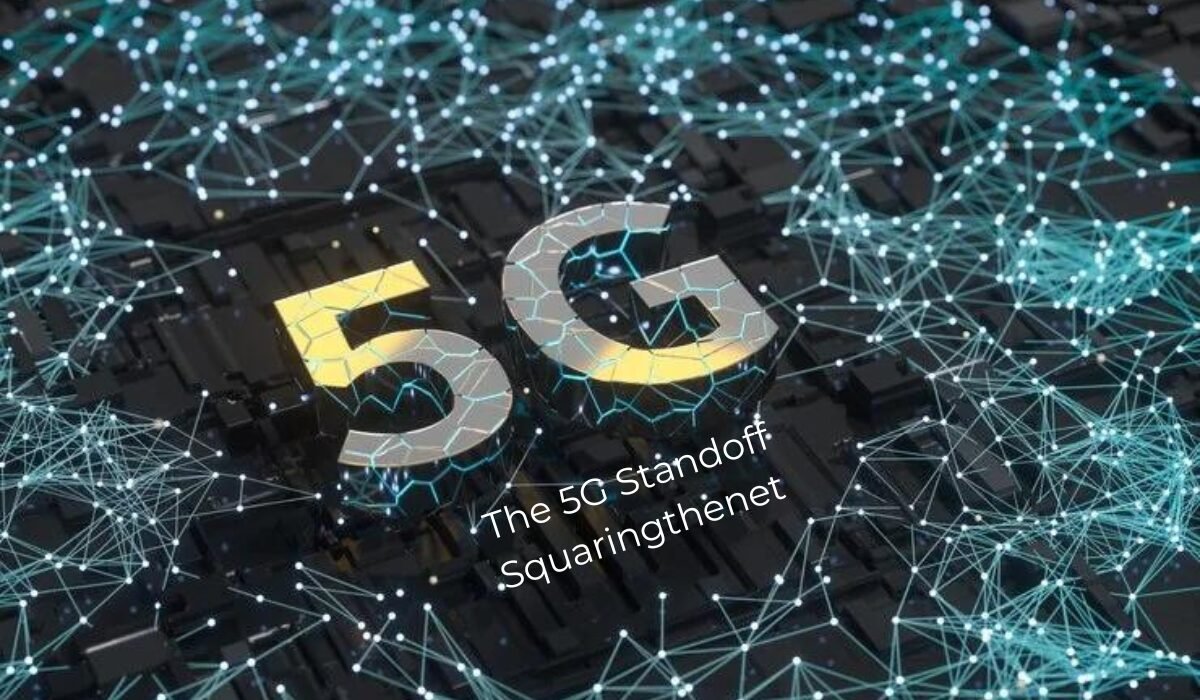In current years, the race to set up the 5G generation has advanced into more than a quest for quicker net speeds and better connectivity. It has become a geopolitical battleground wherein international places, corporations, and advocacy groups are vying for virtual sovereignty, financial dominance, and manipulation over worldwide digital rights. Dubbed the “The 5G Standoff Squaringthenet,” this complicated warfare should reshape how we get admission to, percentage, and manage data within the digital realm. This blog explores the ways-wearing-out implications of this standoff and why we need to shield our virtual liberties.
The Global Race for 5G Dominance
Why the Rush to Roll Out 5G?
5G, the fifth era of Wi-Fi, ensures surprising paces, low inertness, and the capacity to flawlessly interface billions of gadgets. For purchasers, this suggests distinctly fast downloads, buffer-free streaming, and smoother online enjoyment. However, for governments and organizations, 5G is ready for monetary increase, technological management, and national protection. Countries are racing to roll out 5G to benefit an aggressive detail inside the global monetary system and to influence technological innovation.
Key Players in the 5G Standoff
The primary contenders within the 5G standoff are the US and China, with Europe, South Korea, and Japan also making tremendous strides. Businesses like Huawei, Ericsson, Nokia, and Qualcomm are at the leading edge in the company location, supplying the era and infrastructure desired for 5G deployment. These game enthusiasts are not, without a doubt, competing for marketplace percentage; they’re vying for effect and manipulation over international digital infrastructure.
Economic Implications of 5G Deployment
The economic stakes are high in the 5G race. According to a report using the International Telecommunication Union (ITU), the global 5G marketplace is anticipated to generate $ thirteen. 2 trillion in economic rate by 2035. This includes job creation, multiplied productivity, and new industrial business enterprise opportunities for numerous sectors, including healthcare, transportation, and manufacturing. Countries that lead in 5G deployment stand to obtain massive financial benefits, similarly intensifying the opposition.
The Geopolitical Dimensions of the 5G Standoff
National Security Concerns
National safety is a significant problem within the 5G standoff. The generation’s potential to connect essential infrastructure—such as electricity grids, transportation structures, and verbal exchange networks—makes it a capacity purpose for cyberattacks and espionage. This has brought about problems with the protection of the 5G tool, particularly from Chinese businesses like Huawei, which some governments fear may be used for surveillance with the valuable resources of the Chinese authorities.
Digital Sovereignty and Control
Digital sovereignty refers to a country’s functionality to control its virtual infrastructure and records in its borders. The 5G standoff has heightened issues regarding digital sovereignty, with countries looking to claim manipulation over their networks to shield their records and hold independence from distant places have an effect on. This push for digital sovereignty is essential to fragment global necessities and regulations, complicating global cooperation and interoperability.
The Job of Worldwide Associations
Global organizations like the ITU and the World Monetary Discussion (WEF) are fundamentally involved in forming the worldwide 5G display. These corporations operate to set up worldwide requirements and promote cooperation among international places. However, the geopolitical tensions in the 5G standoff pose a significant obstacle to those efforts, as global places prioritize their national interests over global collaboration.
The Impact on Global Digital Rights
Access to Information
One of the most profound implications of the 5G standoff is its impact on global digital rights, particularly the right to access information. 5G generation can democratize access to information by offering a fast net to underserved and distant regions. However, the geopolitical conflict should result in choppy deployment and confined access in certain areas, exacerbating the digital divide.
Privacy and Data Security
Privacy and statistics safety are essential components of digital rights that might suffer from the 5G standoff. The deployment of 5G networks includes the gathering and transmission of enormous quantities of statistics, raising issues about how this data is stored, processed, and protected. The involvement of multiple stakeholders with diverse standards and recommendations complicates the problem, making establishing sturdy statistics protection frameworks critical.
Freedom of Expression
The 5G standoff furthermore has implications for freedom of expression. The control over 5G networks and the digital infrastructure is probably used to censor facts and restrict free speech. Governments and businesses also want to use their effect over 5G networks to stifle dissent and manage the narrative, undermining the thoughts of unfastened expression and open conversation.
How Advocacy Groups are Responding
Defending Digital Rights
Advocacy corporations are actively operating to defend virtual rights amid the 5G standoff. Organizations like Access Now, Electronic Frontier Foundation (EFF), and Human Rights Watch are raising consciousness about the functionality risks and advocating for guidelines that guard privacy, freedom of expression, and get entry to facts. These businesses are pushing for obvious and inclusive decision-making strategies that include all stakeholders.
Promoting Ethical AI and Technology
Advocacy groups have a unique interest in the ethical use of AI and technology. They call for the development and deployment of the 5G generation to be guided by ethical ideas prioritizing human rights and social justice. This includes ensuring that AI algorithms utilized in 5G networks are free from bias and do not perpetuate discrimination or inequality.
Encouraging Global Cooperation
Advocacy businesses are also selling global cooperation to address the challenges posed by the aid of the 5G standoff. They are advocating for worldwide agreements and frameworks that facilitate collaboration and ensure that the blessings of the 5G era are available to all. By fostering talk and cooperation, the ones organizations cause to create a more inclusive and equitable virtual destiny.
The Future of 5G and Digital Rights
Potential Scenarios
Several situations should unfold because the 5G standoff maintains to conform. In an optimistic situation, international cooperation and moral issues guide the deployment of 5G, resulting in extensive access to immoderate-pace internet and additional suited digital rights. In a more excellent pessimistic scenario, geopolitical tensions may additionally cause fragmented networks, restraints in gaining proper access to them, and compromised virtual rights. The actual outcomes will possibly fall somewhere in amongst, stimulated with the aid of the actions of governments, groups, and advocacy agencies.
The Role of Regulation and Policy
Regulation and insurance will be essential in shaping the future of 5G and digital rights. Governments must establish easy and comprehensive suggestions that guard privacy, facts, safety, and freedom of expression. International and advocacy businesses can assist those efforts by presenting guidance, selling exquisite practices, and facilitating stakeholder communication.
The Importance of Public Awareness
Public recognition is vital to ensuring that the deployment of 5G technology aligns with the requirements of virtual rights. Instructing the overall population about the expected risks and advantages of 5G can engage individuals to advocate for their privileges and consider state run administrations and gatherings responsible. By staying knowledgeable and engaged, we can contribute to a virtual future that serves the pursuits of all.
Conclusion
The 5G standoff squaringthenet is a complex and multifaceted struggle with way-reaching implications for global digital rights. As countries, businesses, and advocacy businesses vie to manipulate the digital landscape, the options made nowadays will shape the future of the net and our virtual liberties. All stakeholders must prioritize the principles of digital rights and paintings collectively to create an extra-inclusive and equitable virtual destiny.
By protecting our virtual liberties and advocating for the moral and apparent deployment of the 5G generation, we can ensure that the digital realm serves the interests of people and society. Stay knowledgeable, live engaged, and participate in the verbal exchange to help shape the future of digital rights.
Explore additional assets on digital rights and 5G generation and take actionable steps to safeguard your digital liberties. Together, we can make a difference.

